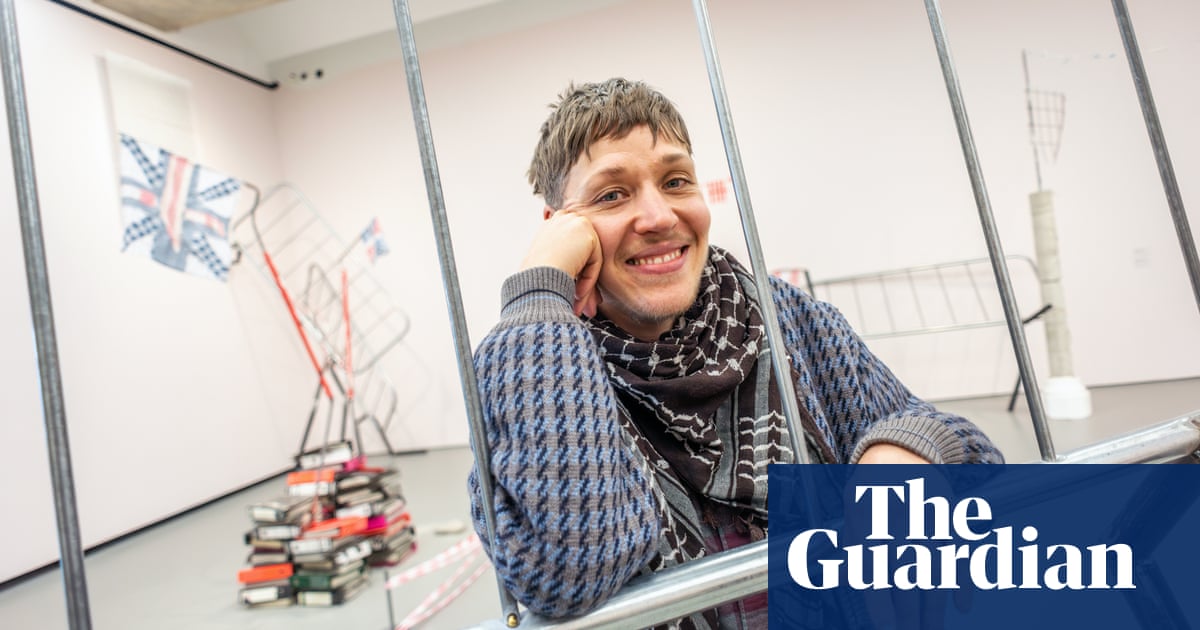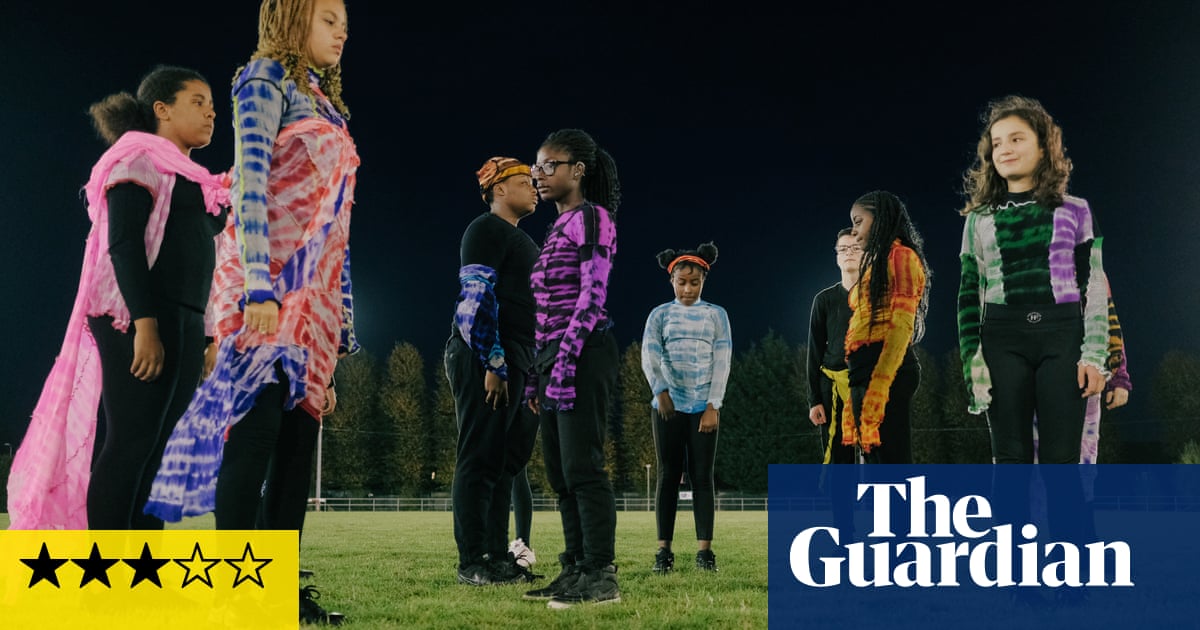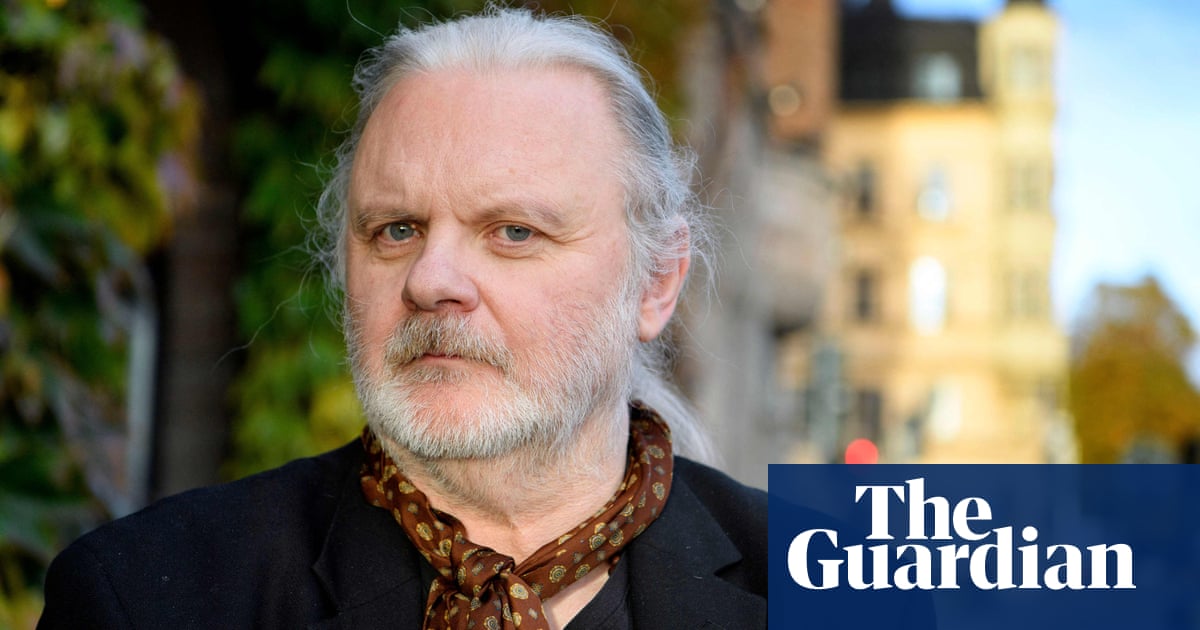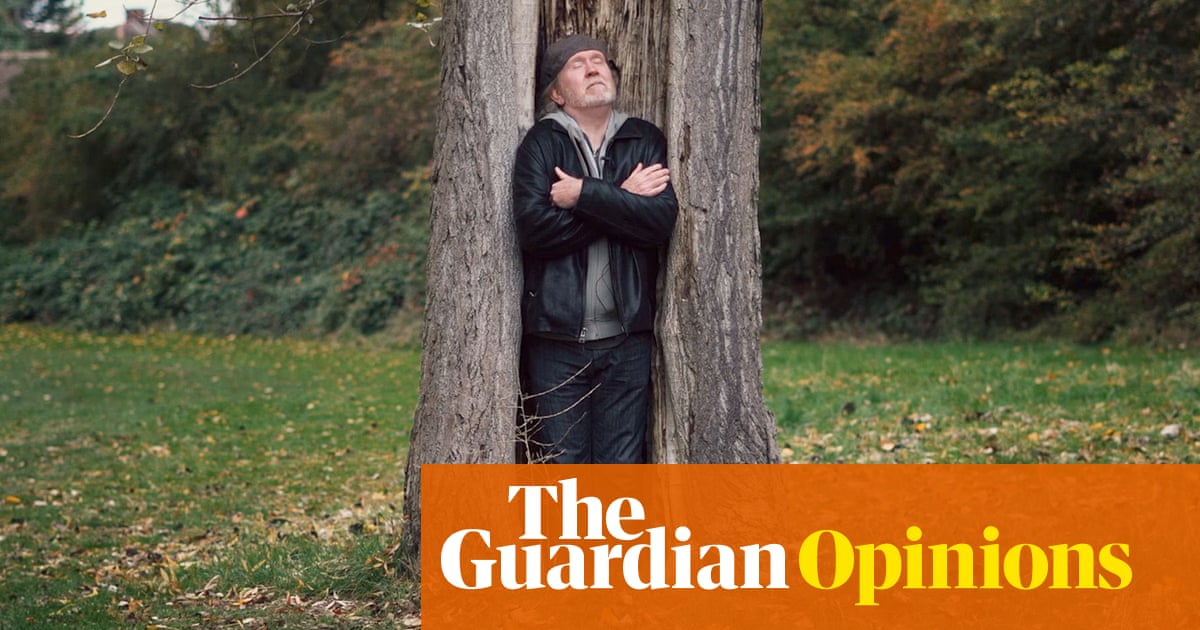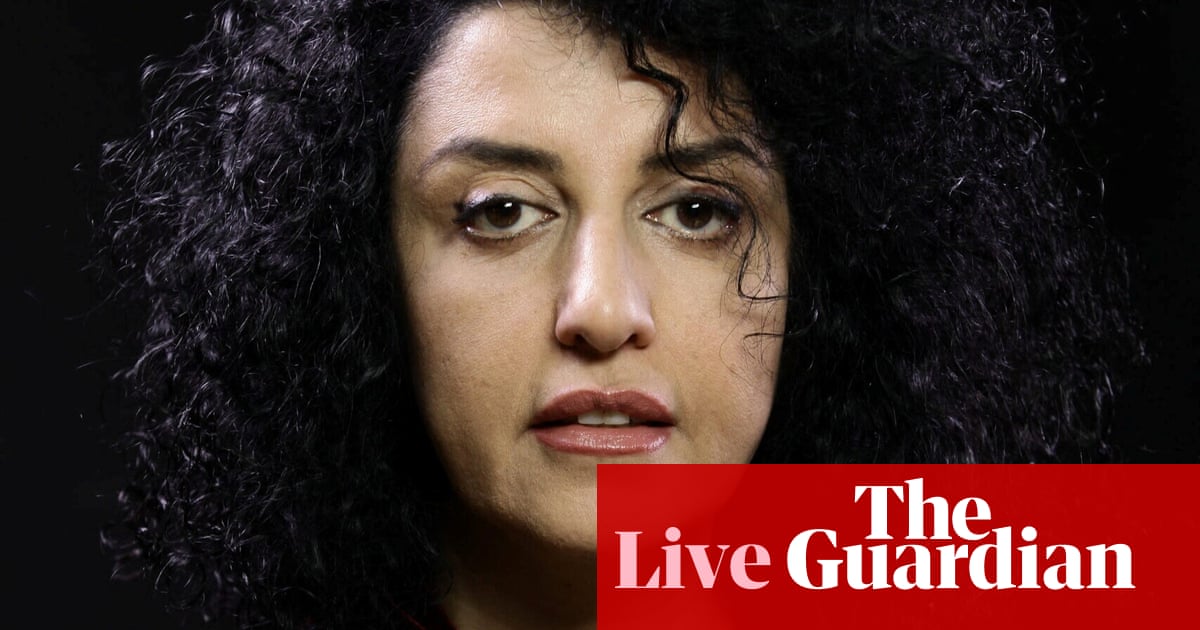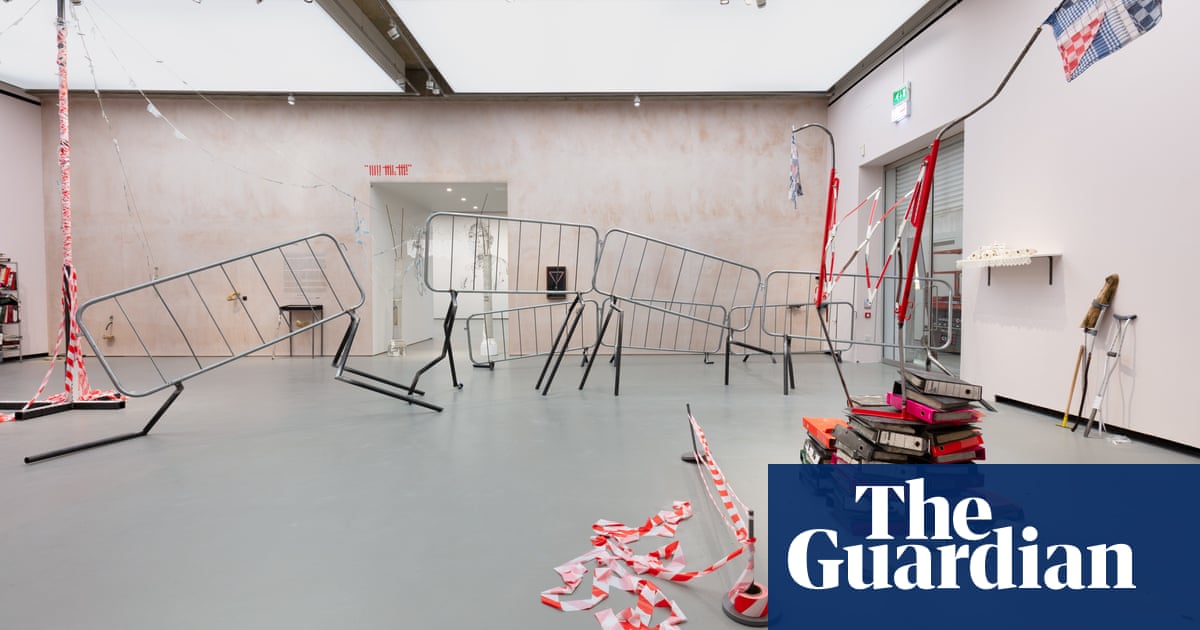
Jesse Darling, whose sculptures are made of everyday detritus to reflect the political instability of our times, has won the 2023 Turner prize.
Oxford-born Darling was one of the favourites to take home the £25,000 award. His sculptures made up of faded union jack bunting and metal pedestrian barriers were shown in two locations: No Medals, No Ribbons was at Modern Art Oxford and Enclosures at Camden Art Centre.
Rapper Tinie Tempah presented the award to Darling, who was commended by the jury for his “use of materials and commonplace objects like concrete, welded barriers, hazard tape, office files and net curtains, to convey a familiar yet delirious world invoking societal breakdown, his presentation unsettles perceived notions of labour, class, Britishness and power.”
For his winner’s speech, Darling criticised Margaret Thatcher for taking art out of schools because it wasn’t “economically viable”. He said: “She paved the way for the greatest trick the Tories ever played, which is to convince working people in Britain that studying, self expression and what the broadsheet supplements describe as ‘culture’ is only for certain people in Britain from certain socio-economic backgrounds. I just want to say don’t buy in, it’s for everyone.”
Afterwards, Darling pulled a Palestinian flag out of his pocket. When asked later why, the artist said: “Because there’s a genocide going on and I wanted to say something about it on the BBC.”
The Turner prize, regarded as one of the art world’s most prestigious awards, is presented to an artist born or working in Britain for an outstanding exhibition or presentation of their work over the previous year. This year’s ceremony was held at Towner Eastbourne as part of the institution’s centenary celebrations. It featured four nominees whose work was tied together thematically by the political upheaval that has impacted people’s lives in Britain, following seismic events such as Brexit and the Covid-19 pandemic. They spanned sculpture, portraiture, video work and large-scale installations and – as usual – the shortlist attracted controversy and ridicule in some quarters.
London-based Ghislaine Leung’s work – a repurposed ventilation system from a Belgian bar – dominated the space it was in, with the huge air vents and shafts taking up most of its exhibition space at Towner. It received mixed reviews, with the Guardian’s Adrian Searle saying it had “a ridiculous sort of rigour”, while others found the work, which also featured a fountain, incredibly dull. Bristol’s Rory Pilgrim’s work also divided critics: one found it “often heartbreakingly beautiful” while another called it “cold and stilted”.
But there was almost universal praise for the two favourites: eventual winner Darling and Barbara Walker.
Walker, 58, from Handsworth, Birmingham, created portraits of Black British people caught up in the Windrush scandal. Many of the people featured were interviewed by the Guardian’s Amelia Gentleman, who first broke the story. The judges praised Walker’s work, which was sometimes created on official forms and documents, as “portraits of monumental scale to tell stories of a similarly monumental nature”.
The work of Darling, who currently resides in Berlin, impressed the jury most of all. They praised the artist’s ability to manipulate materials “in ways that skilfully express the messy reality of life” and expose “the world’s underlying fragility”.
Tate Britain director Alex Farquharson, chair of the jury, said that Darling’s work was a “state of a nation” address that had a “timeliness, dynamism and a boldness that was really grappling with the world … and there’s a lot of humour in the work and you feel immersed in its world.”
Farquharson added that the work was juggling with themes of Brexit, nationality, identity, bureaucracy, immigration and austerity. “There’s a sense of timeliness with all the work, and in that sense I think it’s a really good year. Everyone in their separate ways, feels of the moment.”
Since its inception in 1984, the annual award has become notorious for its divisive nature, with critics often ridiculing entries that sit outside traditional practices such as painting or sculpture. In the past couple of years the Turner seems to have found its feet again, after a period of uncertainty during which there was no definitive winner in 2019 (the nominees shared the prize), and the prize was cancelled during the Covid-19 pandemic in 2020.
Last year’s victor, Veronica Ryan, was widely praised for her sculptures, which sat outside Hackney town hall and, like Walker’s work, referenced the Windrush Generation of Caribbean immigrants who made Britain their home in the postwar period.
The Turner prize 2023 jury was comprised of Farquharson alongside: Martin Clark, the director of the Camden Art Centre; Cédric Fauq, the chief curator of Capc musée d’art contemporain de Bordeaux; Melanie Keen, the director of Wellcome Collection; and Helen Nisbet, artistic director of Art Night.
Darling says he already has plans for how he intends to spend the prize money: “I’ll get a new tooth put in, pay my rent and buy my friends a drink.”




